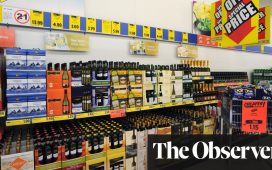The UK government has delayed the third and final stage of the post-Brexit border rollout, triggering an angry response from traders, who said ministerial engagement with industry was “totally lacking”.
A waiver on safety and security certificates for goods entering the UK from the EU has been extended by three months to January 31 2025, according to an update published by HM Revenue & Customs on Monday.
The announcement by the UK tax authority marks the latest in a string of delays to the implementation of the country’s post-Brexit border regime.
Trade representatives said that while they welcomed the waiver extension, the government’s failure to properly engage with industry or offer clear guidance on arrangements with Britain’s largest trading partner had left homegrown businesses at a disadvantage.
“Constant changes to deadlines cost the industry financially and erode confidence in both the government and our sector in terms of our ability to deliver for customers,” said Nichola Mallon, head of trade at business group Logistics UK. “Engagement with industry has been totally lacking.”
Phil Pluck, chief executive of the Cold Chain Federation, which speaks for the perishable goods trade, said industry had been given “hardly any notice” about the delay. It was “another example of the [government] failing to manage their own workstreams and so pushing the industry into another postponement”, he added.

As of October 31, safety and security declarations were due to be enforced for all goods imported into the UK from the EU. The declarations, which were initially due to take effect from July 2022, are designed to provide UK authorities with information about goods on their way to Britain and assess their safety before they arrive.
The scheme is the final step in the implementation of the new border regime, known as the Border Target Operating Model, after health certificates were introduced in January and physical checks began in April.
Anna Jerzewska, an independent trade adviser and chief content officer for consultancy CustomsClear, said the UK could still consider joining the EU’s safety and security zone, which the bloc shares with Norway and Switzerland, thereby avoiding the need for entry and exit summary declarations.
“Over and over again companies that invested in changing their processes to meet upcoming changes, ended up wasting time and money. There were so many instances where companies tried to prepare but ended up worse off,” she said.
Jerzewska added that policy churn made it harder for the government to get businesses to comply. “Companies learn that there is nothing to be gained from trying to be compliant and following government recommendations. This is actually worrying,” she said.
After years of strained relations with the EU under the last Conservative government, Sir Keir Starmer’s Labour administration is trying to forge closer ties, including by seeking a veterinary agreement with the bloc that could cut border red tape for agrifood products.
Marco Forgione, director-general of the Chartered Institute of Export and International Trade, said the professional body recognised it was “early days for the government and the timetable for the implementation for BTOM was not theirs”.
But “announcements like this have got to be made in collaboration and partnership with businesses”, he added.
HMRC said it had “been working closely with ministers to review plans for the introduction of safety and security declarations for EU imports, as well as listening to industry about the time it will take them to prepare”.
“We will continue to engage closely with industry to ensure they are prepared for a smooth transition,” it added.













